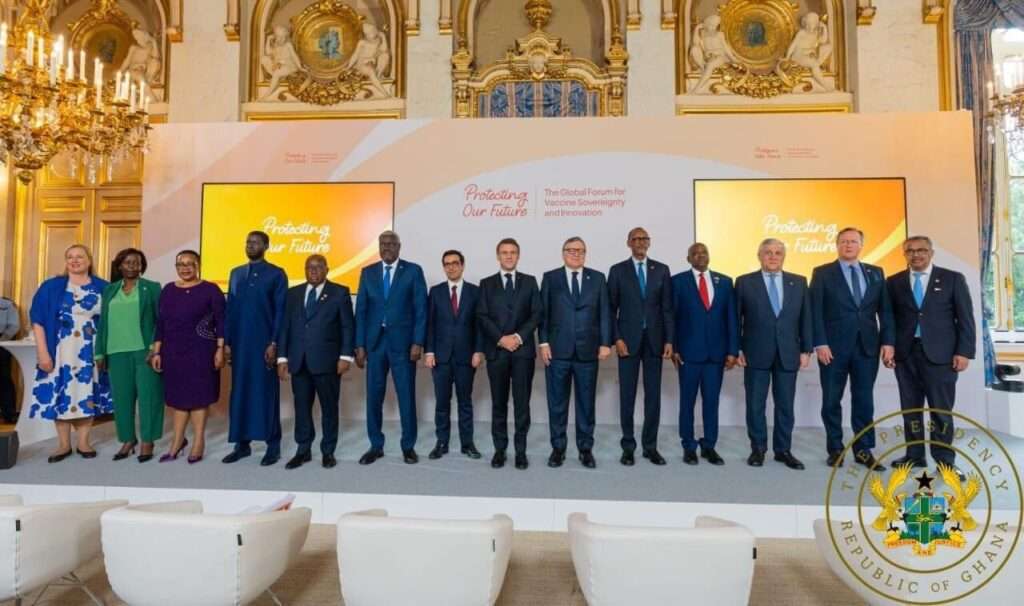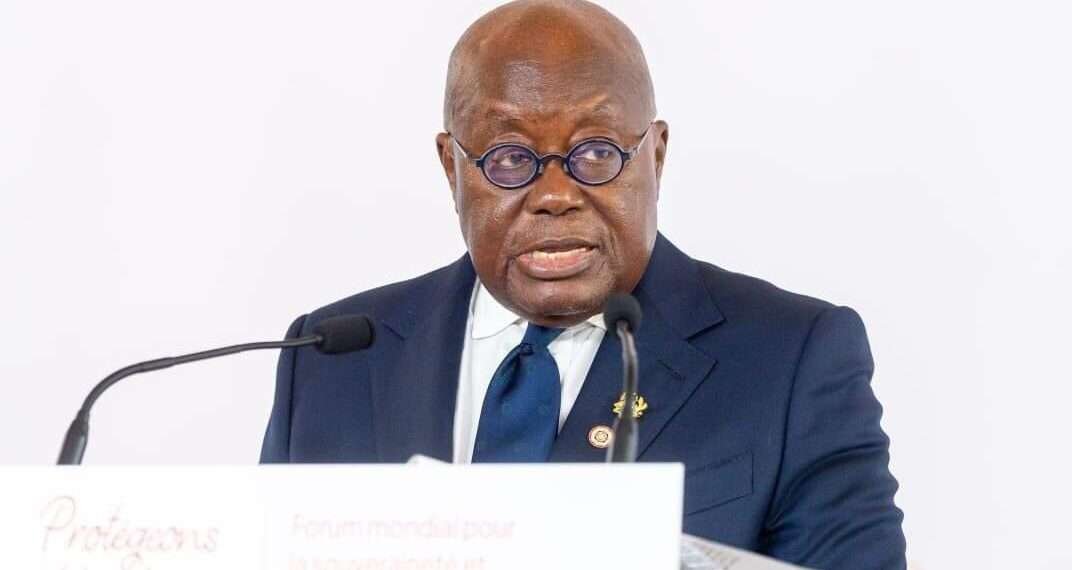In a landmark address at the Global Forum for Vaccine Sovereignty and Innovation, the President of the Republic of Ghana, Nana Addo Dankwa Akufo-Addo, eloquently detailed the nation’s significant strides in advancing vaccine production. Hosted by France, the African Union, and Gavi, the forum united global leaders to discuss the future of vaccine sovereignty and innovation, underscoring the pivotal role of Africa in this global endeavor.
President Akufo-Addo opened his address by emphasizing the recent approval of the African Vaccine Manufacturing Accelerator (AVMA) during the Gavi Board meeting. This initiative, a strategic partnership between Gavi and the Africa Centre for Disease Control and Prevention, aspires to produce 60% of Africa’s vaccine doses by 2040. This ambitious target marks a critical shift towards reducing dependency on external sources and enhancing the continent’s capacity to manage its health needs independently.
“The integration of COVID-19 vaccinations into routine immunization programs demonstrates resilience amidst pandemic challenges. This seamless integration showcases Ghana’s dedication to maintaining robust immunization coverage even in crisis conditions.”
Nana Addo Dankwa Akufo-Addo, President of the Republic of Ghana
A pivotal aspect of the president’s address was the emphasis on sustainable vaccine manufacturing. President Akufo-Addo reaffirmed Ghana’s unwavering commitment to this cause, stressing the importance of public-private partnerships.
Currently, Gavi covers 80% of Ghana’s vaccine costs, with the government covering an additional 15%. The objective is to achieve full self-financing by January 2030, a significant milestone that underscores Ghana’s path towards health sovereignty and financial independence in the healthcare sector.
In line with this vision, President Akufo-Addo announced plans to expand Ghana’s vaccination schedule to include Malaria, Human Papilloma Virus (HPV), Hepatitis B, and additional doses of Inactivated Polio Vaccine (IPV). By 2030, the geographical coverage of the malaria vaccine is set to extend from 136 to 261 districts. This expansion not only aims to enhance immunization coverage but also to address endemic diseases more effectively, safeguarding public health.
The president introduced Ghana’s Health Financing Strategy 2023-2030, which advocates for increased resources for health, particularly preventive services. The strategy underscores the necessity for investment, advocacy, and robust public-private partnerships.
Furthermore, it explores innovative procurement opportunities, including pooled procurement with ECOWAS member states and other regional economic blocs, to leverage collective bargaining power and ensure the availability of essential vaccines.
Enhancing Vaccine Research

A cornerstone of Ghana’s vaccine sovereignty initiative is the establishment of the Ghana National Vaccine Institute in May 2023. This institute coordinates vaccine research, development, and manufacturing, catalyzing domestic vaccine production.
Its responsibilities include setting up manufacturing plants, developing markets, supporting human resource capacity-building, and strengthening research and development. Collaboration with regulatory bodies ensures adherence to global standards and facilitates technology transfer, enhancing the institute’s operational efficacy.
President Akufo-Addo also highlighted efforts to bolster the capabilities of the Food and Drugs Authority (FDA), recognized by the World Health Organization as a level 3 regulator for vaccines. “These efforts include the construction of cleanrooms, the establishment of a molecular biology laboratory, and the upgrading of regulatory information management systems,” President Akufo-Addo emphasized.
The FDA’s enhanced capacity provides critical regulatory support to domestic vaccine manufacturers like DEK Vaccines and Atlantic Lifesciences, ensuring that locally produced vaccines meet stringent quality standards.
President Akufo-Addo commended the collaborative efforts that culminated in the Global Forum for Vaccine Sovereignty and Innovation. He expressed optimism about the future of sustainable vaccine production in Africa, marking the forum as a historic milestone in global health efforts.
Ghana’s leadership in advancing vaccine production underscores its commitment to health sovereignty and innovation, setting a benchmark for other African nations to follow.
Ghana’s strides in vaccine production are not just about self-reliance; they symbolize a broader vision for Africa’s health independence. By championing local production, fostering international collaborations, and enhancing regulatory frameworks, Ghana is paving the way for a future where Africa can produce its vaccines, control its health destiny, and respond swiftly and effectively to public health challenges.
This vision, articulated with clarity and conviction by President Akufo-Addo, represents a transformative shift towards a healthier, more self-sufficient Africa.
READ ALSO: EU Agrees On 14th Sanctions Package Against Russia



















